This is the text of a presentation given to the Sydney Traditionalist Forum on 29 October 2022 by Mike Maxwell of Imperium Press, as part of the Forum’s “Quarterly Inquiry Series”.
♣
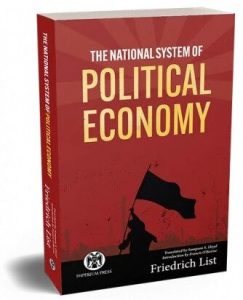
Friedrich List, “The National System of Political Economy” (Imperium Press, 2022) [click above for more information about titles from IP]
If you’d have told me 7 or 8 years ago that I’d be delivering a speech critiquing capitalism, I wouldn’t have believed you. Back then I was a libertarian, and it’s been a long journey from there to here. Lots of other people have been on similar journeys. 2016 was a real watershed moment; you can only imagine the panic of the managerial class as the right turned away from liberalism, popular sovereignty, rule of law, constitutionalism, anti-statism—but above all, and what I want to talk to you about today, we saw the right turn away from capitalism.
But a lot has happened since 2016—most of it bad. For the man on the street, the genie is out of the bottle—he can’t unsee the blatant power politics, but increasingly the dissident right is starting to retreat back into its pre-2016 priors. It’s starting to believe that the answer to this power politics is popular sovereignty, constitutionalism, even liberalism. Above all, the right is crawling back into the warm bosom of anti-state capitalism as a knee-jerk reaction to COVID tyranny. So, the right needs, today more than ever, a serious and foundational critique of capitalism, a critique that strikes at the root. But first let’s take a short tour through the critiques that others have offered, both from the left and the right, and see what we can learn from them.
♣
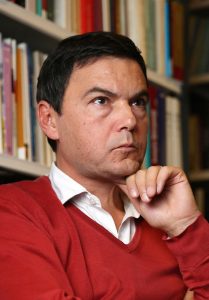
Prof. Thomas Piketty, School for Advanced Studies in the Social Sciences.
One critique of capitalism that used to have a lot of currency comes from social democrats — Thomas Piketty is a notable example. His book Capital in the Twenty-First Century argues that inequality is a feature of capitalism and not a bug, and that the unchecked growth of inequality threatens the democratic order. If only it did. This line of argument has more or less been abandoned since the rise of Donald Trump, because it’s quite clear that capitalism serves the aforementioned power politics by obscuring the continuum between formal power and informal power.
Another critique from the left comes from anarchists, typified by Proudhon’s polemical assertion that “property is theft.” However, this can only ever be polemic, because the concept of theft presupposes a concept of property—a rightful owner from whom something is taken. The subtext here is that ownership is governed by use—so-called usufruct property. The result is the total abolition of the concept of property, as property rights only come into question where property is not occupied—so-called absentee ownership, a redundant concept. This and the notion of usufruct were then taken up by Marx and elaborated into his own system.
Marxism is by far the most influential critique of capitalism ever developed by the left. Most of its key ideas are wrong, but at least wrong in interesting ways. The base-superstructure model, whereby a society’s productive forces shape its ideology more than vice versa, is straightforwardly false — compare the superior explanatory power of Coulanges’ account of the decline and fall of the classical world by the developments in its religion. Marx gets the base-superstructure backwards, but his contribution lies in pointing out the reciprocal and dialectical nature of the relationship.
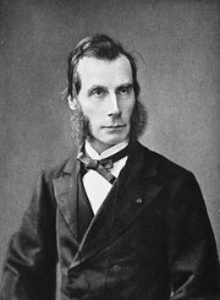
Fustel de Coulanges, French historian (b. 1930 d. 1889)
Marxian exploitation is similarly wrong, but interestingly so. The idea is that value is a function of socially necessary labour time (SNLT), the average amount of labour needed to produce something. However, Marxism smuggles prescriptions into its descriptive system by its idiosyncratic use of terms. For the Marxist, “value” is restricted to exchange value, and only for commodities — a term which is itself idiosyncratic to the Marxist. For him, “commodities” are things created by labour to be sold, excluding what we normally take to be commodities such as land or raw materials. The result is the elaboration of a tautology: the value that attaches only to things created from labour, is a function of the amount of labour that went into them. In excluding from its value analysis anything not created by labour, Marxism enshrines the concept of usufruct property and makes anything else so-called “exploitation”.
Marx’s concept of alienation is his most valuable. But the kind of autonomy he describes as being the essential element in human nature only recapitulates Enlightenment ideas that justify unfettered capital in the first place. The concept of alienation has been much better developed by the right.
Moving on from left-wing critiques of capitalism, we have Georgism, which sits uncomfortably on the boundary between the left and right. The basic idea is quite simple: that land is a corporative asset held jointly by all society, and so we need a land value tax to redistribute the gains from economic rent, which by extension are held jointly by all society. This is an intriguing school of thought that maintains the concept of private property along with the concept of corporative property, but it doesn’t go far enough—why should only land be corporatively owned? What’s more, it still bases its analysis on utilitarian assumptions, without stopping to inquire whether these assumptions are part of the problem of capitalism in the first place.
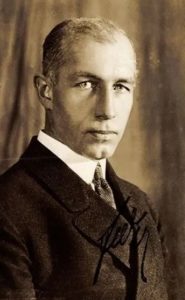
Gottfried Feder, German engineer and economist (b. 1883 d. 1941)
Various critiques of capitalism have been levelled by fascists. The best known is perhaps that by Gottfried Feder, whose Manifesto for Breaking the Interest Bondage of Money is directed toward abolishing usury. This anti-usury concept in some ways echoes the Georgists, where the money supply is viewed as a kind of corporative asset, the loan of which is to be managed by state-run institutions with corporative ends in mind. Feder’s analysis is right, but it doesn’t go far enough either—clearly there’s more to the problem than usury.
Another important fascist critique is offered by Ugo Spirito. His programmatic economy turns the idea that “authoritarianism is fine in a village but not in industrial societies” on its head. Liberal economics, with its idea of the invisible hand, rejects the idea that the economy is directed from above, but Spirito points out that no economy is ever anything but—which events since 2016 have demonstrated quite clearly. All societies have an economic program, including capitalist societies. Where capitalism differs from fascism is that the program, the goal, is hidden, not discussed out in the open amongst syndicates, corporations, or guilds, but behind closed doors amongst technocrats with no accountability. Far from producing subsidiarity, capitalism obscures authority by pretending to do away with it, thereby making it unopposable.
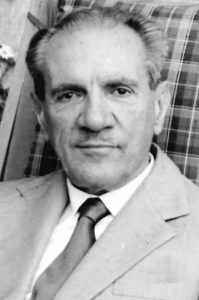
Ugo Spirito, Italian philosopher (b. 1896 d. 1979)
Finally, we get an interesting critique of capitalism from the right by the distributists, exemplified by the papal encyclical Rerum Novarum. Like the fascists, they take an integral approach to economics, prizing subsidiarity and modelling themselves after the guild system. Where distributism stands apart is in its theological approach to economics, partly sacralizing property as something God-given and ipso facto something inherently corporative. This is a very attractive school of thought, but it does tend to be wary of state socialism and so there is a question of how land is to be distributed, and it does subscribe to the bottom-up social ontology of many of the left-wing critiques.
Overall, the critiques from the left generally miss the mark, whereas the critiques from the right are more on target but are largely ahistorical. And none of these critiques really attempts to drill down and work out exactly what capitalism is in the first place — except, to its credit, Marxism. If capitalism is simply something like “private ownership of property for profit,” where’s the objection? Private property is as old as the hills, and man has always expected profit from the soil. If this definition applies as well to us today as it applies to the classical world, perhaps we need to dig a bit deeper.
♣
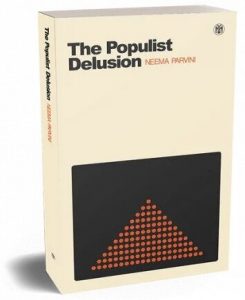
Neema Parvini, “The Populist Delusion” (Imperium Press, 2022) [click above for more information about titles from IP]
As an alternative to this I propose a different definition of capitalism, and implicit in this definition is a foundational critique. The definition is simple: capitalism is the total desacralization of property. All the valid critiques just mentioned are comprehended and contained in this definition.
The emphasis here is on property. Capitalism is primarily about property, because economics, from Greek oiko-nomos (lit. “household law”) — economics without property is empty of content. But capitalism is not about private property, certainly not in the Marxian sense — Marx’s notion of private property cashes out to the ability to rent things: non-usufruct property. But non-usufruct property is ancient. Double-entry bookkeeping is ancient too, so it’s not about profit either. Nor is it about markets, commerce, entrepreneurship, supply and demand, commodification—it’s not even about capital. All these things formed the backbone of ancient economies.
Capitalism is not primarily about private property, but it’s about some sort of property. So, to understand the break between capitalism and what came before it, let’s work our way back, and find out how property has changed with time.
♣
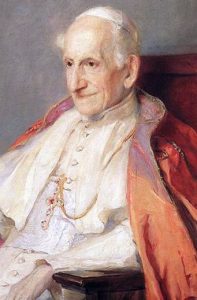
Pope Leo XIII (b. 1810 d. 1903)
On the surface, the major break between feudal and capitalist property relations was in breaking away from joint-ownership. There’s an inherent sociality to feudalism not found in later social orders. Feudalism arose from the combination of vassalage with fief-holding—that is, it arose from the inherently personal obligation to a man, in conjunction with the granting of immovable property by that man. Property under feudalism is bound up with social obligation—all property is held subject to the performance of duties.
But the duties are not entirely one-sided. The mark of feudal property is the double-proprietorship, and this two-way ownership holds between lord and vassal, as well as between landlord and tenant. The vassal holds his fief only so long as he renders his lord homage and service. Later, as feudal property became desacralized, this service could be acquitted in terms of payment, but originally the obligation had to be carried out personally. However, the lord also had duties to his vassal, and if the lord didn’t offer protection, immunity, and political authority, the vassal was not obligated to him. It was the same between landlord and tenant—the tenant owed the landlord service, but the landlord owed him protection and the maintenance of his rights. In feudalism we see the superior ownership of the lord of the fief coexisting with the inferior ownership of the tenant. How different is all this than under capitalism? Joint-ownership is not just possible, as under capitalism, but all property is corporative.
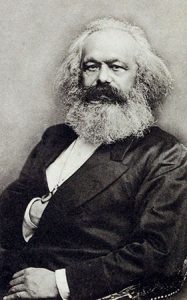
Karl Marx (b. 1818 d. 1883)
One mark of sacral property is inalienability; feudal property was not exactly inalienable, but in some degree indivisible. The serf can’t be alienated from his land and can’t be parted from his family—this is one of his rights, which is God-given and sacred. More sacral still is the conveyance of the fief, the transaction upon which the entire feudal economy depended, and this was done by the vassal rendering the lord homage and fealty. These two obligations are not exactly synonymous—homage is older, and traces back to the ancient Germanic custom of admission into the männerbund, whereas fealty gives Christian sanction to this obligation. Homage, however, was the essentially religious tie that bound all feudal society together, including its property relations.
All feudal property stood upon this sacral basis, however indirectly. Later, the glue that held the system of property relations together came to be the great chain of being, where each man in the divine hierarchy, from bonded serf all the way up to the Holy Roman Emperor, could trace his part in the social order unto the throne of God himself. And property itself was in some sense consecrated. It was restricted in its usages; it was possible to abuse it; above all, property conferred not only rights, but duties. Property was not exactly a sacred relation, but nor was it purely economic—it was a mixture of the two. The break between feudalism and capitalist was not so much the break between corporate and individual ownership; more fundamentally the break involved the loss of this mixed sacrality.
But it was a mixed sacrality. Feudalism was a mixture of Germanic and Roman elements, and to see the different elements each brought to the table, we have to seek the origins of feudalism itself.
♣
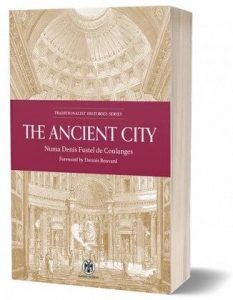
Numa Denis Fustel de Coulanges, “The Ancient City” (Imperium Press, 2020 [1864]) [click above for more information about titles from IP]
The Germanic world brought us the lord-vassal relationship, but the landlord-tenant relationship came from Rome. The double-proprietorship characteristic of this tenant arose out of late Roman antiquity, to solve a problem. Municipalities were communities of Roman citizens living outside Rome, patricians who owned the lands around it, called latifundia. These latifundia were worked by slave gangs, and the patricians often administered them by deputizing the more responsible slaves to preside over the less responsible ones. The Roman paterfamilias might give the slave gang leader a peculium for his trouble, but however responsible, the slave could never be a free tenant on the land. Still, this payment incentivized the leader, and gave him an interest in the productivity of the soil.
The municipalities, these communities of Roman citizens, were themselves presided over by Roman functionaries. But because of the instability of the later imperium, the administration of these municipalities changed hands so often that superintending large landed domains became nearly impossible. To solve this problem, the Italian municipalities started leasing land to free tenants in perpetuity, which gave the tenant even more interest in the soil than the slave leader had. This made these latifundia far more productive, and the arrangement was copied by individual proprietors—but the result was that the free tenant was seen as himself having a qualified proprietorship. We call this joint-ownership emphyteusis, and it formed that basic kernel of feudal property relations. This was something altogether desacralized, but when it met with the sacral relation of homage in the Germanic männerbund, the result was the feudalism we know.
At the same time, the feudal world was brought into being by a shift in the basis on which claims of ownership were judged. For the Roman, the law was sacred and highly ritualized, so violations against property were violations against the deity. But late in Roman history, for reasons of structural conflict, this changed abruptly. Whereas originally ownership was a matter of positive law, there arose a distinction between this and ownership as a matter of “natural” law — a basis in law vs. a basis in equity. We can think of law vs. equity as the ancient analogue of legal formalism vs. legal realism. Hence, we get the ownership of the lord — whose title to the land is based on descent — coexisting with the ownership of the tenant, who has no claim whatsoever according to sacred custom.
This move from law to equity — or from tradition to natural law — was accomplished over centuries, and paved the way for the emphyteusis. The important takeaway here is that the transition to feudalism was itself a desacralization. To see what fully sacral property looks like, we have to travel back to the classical world.
♣
The history of Roman property relations is complicated, but there are a few important things to note about it.
First, from the earliest times to the end of the imperium, there was a move from res mancipi to res nec mancipi. Today when we want to buy something we tap a piece of plastic against another piece of plastic, and the transaction is done. For the Roman of the earliest times, the situation could not have been more different. For the archaic Roman, all economic transactions were essentially sacred matters, requiring an elaborate ceremony known as the mancipatio (lit. “taking hold of the hand”). A sale was not a mere handshake, but an elaborate ceremony presided over by a god, with prescribed ritual actions and verbal formulae that must be performed exactly for a valid transaction to take place. The reason for this was that for our Roman, ownership was not an agreement between men as to the status of a thing, but the status of a thing in the eyes of the god. This if course required an impartial witness, and if either buyer or seller zigged where they should have zagged, if either should stutter and perform the ritual invocations anything but letter-perfect, no transaction had taken place at all. Property conveyed in this way was called res mancipi — goods requiring the mancipatio. Originally there was no other means of conveyance.
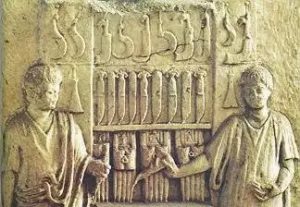
Bas relief illustrating the act of mancipatio.
This point-of-sale system was necessarily somewhat limited and localized. Over time, as the needs of Roman society changed, a second category came into existence: the res “nec mancipi” — goods not requiring the mancipatio. For now, we can think of the distinction as roughly between movable vs. immovable property, which it later came to represent. At first, the basket of “movable” goods was quite small, but as time went on it grew to where most goods were easily conveyable—which is to say, desacralized—and eventually nearly all forms of property were desacralized. We see echoes of this in feudal times with the move from the feudalized law of the land to the law of movables, and in modern times from the law of realty to the law of personalty. But the main distinguishing mark between classical and feudal property relations was that unlike feudalism, the classical world at all times had the concept of freehold or allodium — absolute ownership with no superior, which is to say, fully sacral property.
The popular image of the classical world is quite misguided. Often, we think of Plato, Aristotle, Cicero, and Caesar as the root and wellspring of traditional European society, but the classical world was the result of a revolution, the result of a long structural conflict. It is to the archaic world as liberalism is to feudalism—the one was a revolutionary critique and replacement of the other. We can see that the classical world itself involved a desacralization, but from what? To understand classical notions of property, we have to go back further, to the rootstock of Aryan peoples, to their primitive notion of property.
♣
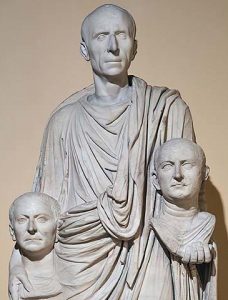
“Togatus Barberini”, illustrating the act of ancestor worship (marble, circa C1st BC)
Like all archaic peoples, the Indo-Europeans—the ancestor people of the Romans, Greeks, Germanics, Celts, and many others—did not observe a distinction between law, custom, and religion. The religion they practiced was not yet the polytheism of Zeus, Jupiter, Thor, Odin, and others; their religion was ancestor worship. For them, the home was a temple—all religion was originally domestic, centred on the home and the dead buried on the property. They believed that upon death the soul didn’t part with the body, but remained present to it along with the body’s needs, so the duty to minister to the needs of the dead in the afterlife was incumbent on the living. This meant that the tomb resided on the property along with the altar, that regular funeral banquets were given to the dead along with daily libations and sustenance, and that the centre of the home was the sacred hearth fire, which was connected with the dead.
For this people, and for all its daughter peoples well into the historical period, the hearth, the rites, the gods—all these were private to the family. And the executive presiding over all these was the paterfamilias, the “House Father”. He was at once high priest, supreme magistrate, commander in chief in times of war—and most relevant to our purposes, he was sole proprietor. We can think of him as absolute monarch and supreme pontiff rolled into one—perhaps we could call his rule microstalinism.
For our Aryan House Father, property was crucial to the practice of religion. Without a family property, the ancestors could have no resting place. For him, religion, not law, guaranteed the right of property. In fact, he would not even have understood the distinction. Law was a function of religion—every legal procedure was a formal religious ritual, no less than the economic procedure in the original res mancipi. So, the right of property was more absolute than we can even imagine today. Today, the right of property is founded on the principle of social contract, the right of labour, or other principles—back then, it was founded on the principle of private, domestic religion.
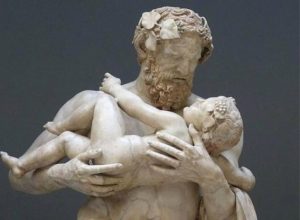
The “paterfamilias” or the father of the family, was the eldest male in the family unit and was an archetype of social organisation for all Indo-European peoples.
The originary notion of property was something more private than anything that has existed in 3,000 years. With a full, historical understanding of the meaning of private property, we are in a position to see the absurdity of defining capitalism as a function of private property, whether for profit or otherwise—although the qualification of “for profit” calls to mind alienability, which is a distorted way of saying desacralization. No property could be more private than that of our Aryan House Father, because his notion of property was altogether particularized. His notion of property is the grandfather of Blut und Boden. His notion of property demands inalienability. His notion of property is the ultimate in corporatism.
In sum, the archaic notion of property is the ultimate in private property. Lineage governs ownership, not natural law. This, and not capitalism, is the polar opposite of the usufruct property so celebrated by Marxists. The Marxist attempt to draw a line between capitalism and itself is utterly naïve, because properly understood, it is desacralization of property which gives birth to both communism and capitalism — not opposites, but cousins. First, the move from res mancipi to res nec mancipi desacralizes property. Later, usufruct enables the use-based proprietorship of the emphyteusis — a further desacralization. Still later, the secularization of the homage and the discharge of obligation in impersonal terms moves us still closer to capitalism. At every stage the relation between owner and owned devolves into mere use — we call this “commodification”. This is the fountainhead of our “rights based” moral paradigm—today only rights attach to property; duties attaching to property is unintelligible.
What began as particularized, inherited, rooted in the soil, inalienable, and corporative, through the slow march of time devolved—though by no means necessarily—into something universal, deterritorialized, free, and individual. Over thousands of years, in the move from the archaic to the classical, through feudalism and ultimately to capitalism, the history of property relations is a history of desacralization.
♣
The archaic critique of capitalism has a number of virtues. It comprises and integrates the concepts and criticisms of capitalism that came before it. Where the libertarian says capitalism is “private” ownership and a free market, we say that capitalism is the death of corporative ownership along with the abandonment of the res mancipi. Where the Marxist says that capitalism is “private” ownership of the means of production, he means that capitalism is non-usufruct property, and we say if only it were. Where the traditionalist says that capitalism is a “bread alone” philosophy and a recipe for hyper-centralization, we agree with him, and add that capitalism is desacralized property, alienable from man and god alike.
These are all special cases of our view, which sees in the originary and undistorted essence of capitalism a loss of property’s ultimate significance. When we say that capitalism is materialistic, commodified, exploitative, usurious, utilitarian, and mercantile, these are all distorted and indirect ways of saying that capitalism is irreligious. Three millennia on, and our objection to capitalism is the same as our forefathers’ objection to capitalism’s own forefathers.
The archaic critique of capitalism is not a simple reframing, but tells us something new about it. We emphasize the continuity of capitalism with what came before it, which was itself driven by the abandonment of the sacred in property relations. However, this doesn’t explain the break between capitalism and what came before it—if the process is ancient, how is capitalism something new and distinct? Capitalism is not something new, but is simply the logical conclusion of something old — capitalism is the total desacralization of property. Feudal property still retained something of the sacred character handed down from the earliest times, and where capitalism makes a qualitative break from it is in its total, or at least near-total abdication of this sacrality.
Not all anti-capitalisms are created equal, but all are anti-capitalism, and that is the problem. In other words, anti-capitalisms cede frame to capitalism, standing in opposition to it. The archaic critique of capitalism, however, does something quite different—it frames capitalism as standing in opposition to itself. Sacral property is not the absence of capitalism; capitalism is the absence of sacral property—capitalism is the derivative term, and this has important ramifications, but that’s a topic for another discussion.
Above all, the archaic critique of capitalism lays bare the essential solution: resacralization. The burden here is that the problem of capitalism is not separate from the other problems of modernity that demand resacralization, such as the problem of meaning, of the state, and of the family—not for no reason is oiko-nomos the “law of the household”. The issue is resacralizing property, which is not separable from resacralizing our world—this is “one struggle” against one problem.
♣
Something new will rise from the ashes of modernity. The only question is do we want it? Some number of utils will need to be sacrificed in order to resacralize property, but sacral property is an engine for the production of gemeinschaft, a society equipped to build anew, capable of creation rather than slavish repetition, as modernity is not. There don’t seem to be any alternatives on offer that don’t lead straight back to church in fee to capital. The choice is between God and Mammon. That choice seems pretty clear to me.
— Mike Maxwell is the editor in chief of Imperium Press, which has been publishing key titles in the Western Cannon, classical curricula, and is also well known for its “Studies in Reaction” and “Traditionalist Histories” collections. Imperium Press also hosts the podcasts “ImperiumCast” and “CvltvreDads”. The material published and discussed is intended to correct the distortion and deconstruction of the classics in literature and theory by feminists, Marxists and other intersectionalists who have waged a relentless campaign over recent decades to replace the definitive texts of Western civilisation with third rate material. Imperium Press has a mission to reclaim our heritage from forces hostile to it.
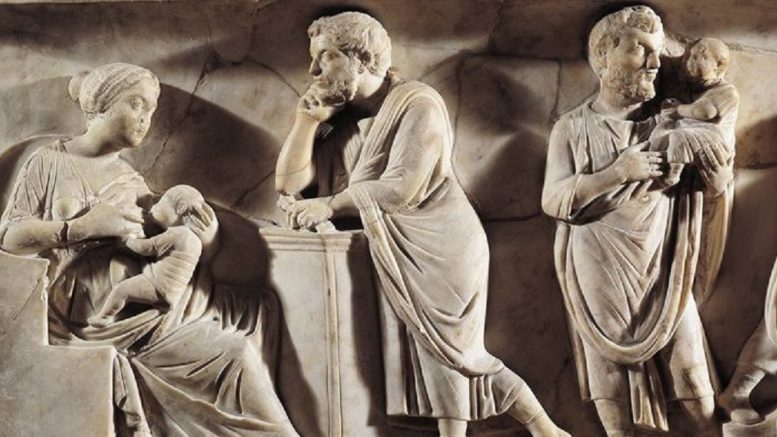
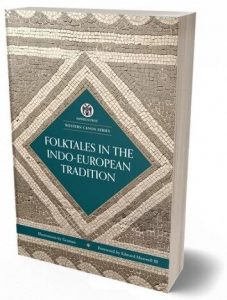

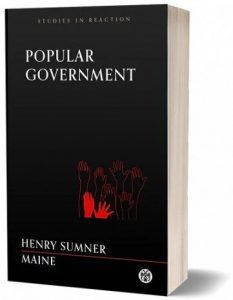
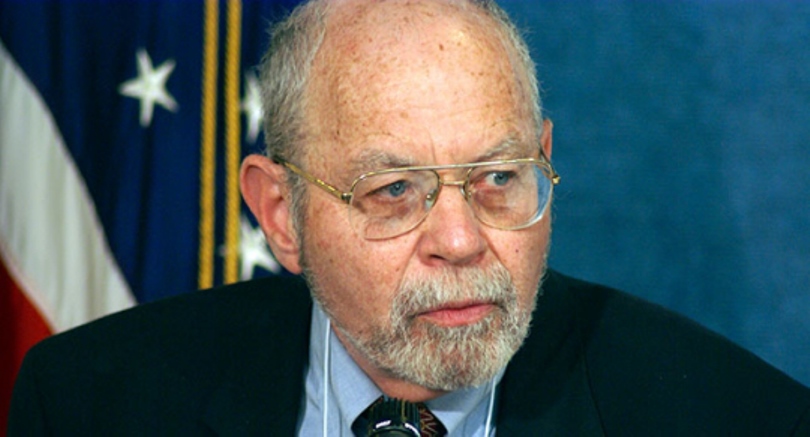
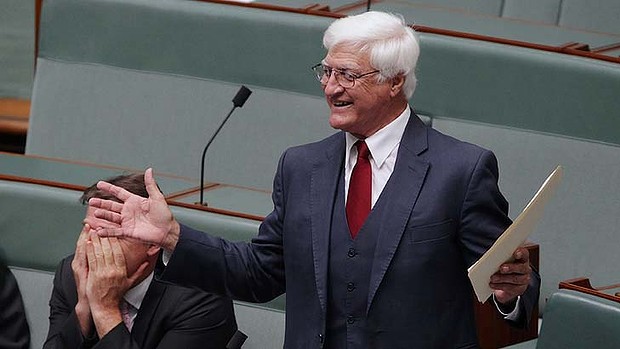
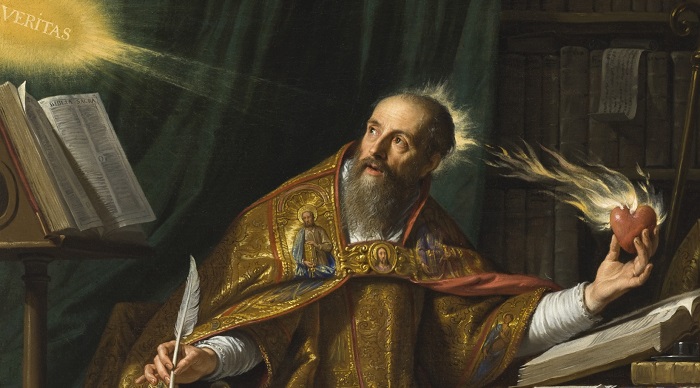
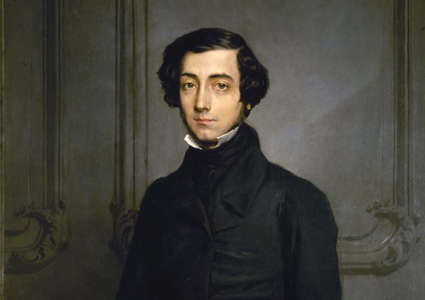
Be the first to comment on "Capitalism: An Archaic Critique"